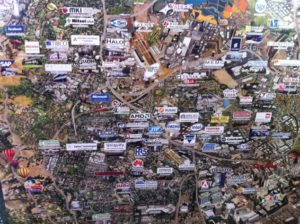
Or more precisely, who owns Santa Clara County? With the cooperation of local officials including the County Assessor, a consortium including the Mercury News has determined who owns the greatest value of real estate in the County. Tech giants Alphabet and Apple are second and third, but the number one owner turns out to be Stanford University.
Some other important information:
Proposition 13 is mentioned, but the incentive which keeps old people in their homes which become unaffordable to most families is not explored.
Local opposition to development, preventing housing construction which might otherwise occur, is discussed.
Stanford’s existing holdings include commercial property, but their current acquisitions seem mainly to provide housing for some of their elite employees. These people are able to buy houses at favorable prices (relative to the area), however Stanford retains the land and retains the right to buy the house back eventually. Local non-Stanford people complain, of course, but do not offer to sell their properties at a discount.
Apparently California practice is to assess all real estate, even that which is exempt. This enables meaningful estimates of ownership even tho $13.3 billion of Stanford’s $19.7 billion in real estate is exempt.
Several local officials were interviewed. They don’t discuss how it feels to know that your opposition, Apple and/or Google, has control of much of your communications and might be monitoring them.
Well worth a read for those interested.
